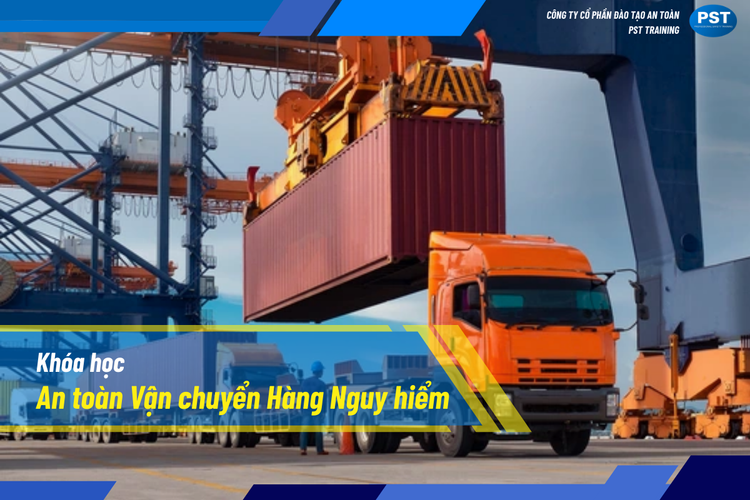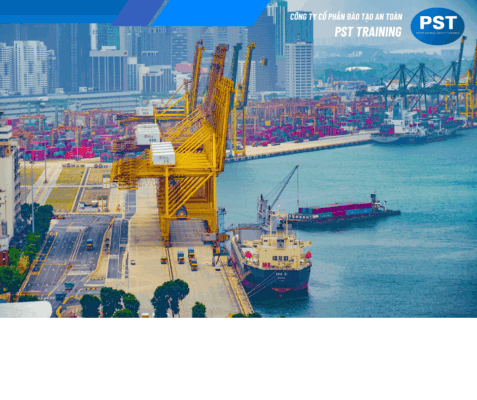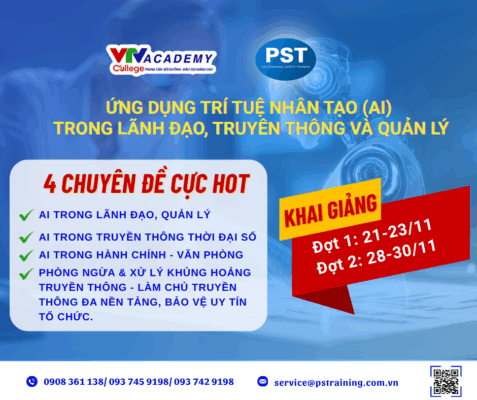You’ll Never Look at “Transporting Goods” the Same Way Again!
1. Why Does This Course Exist?
Just one small mistake when transporting dangerous goods can lead to disasters: explosions, chemical leaks, or long-lasting environmental pollution. In Vietnam, such incidents are not rare — and the cost is not only financial, but also human lives and corporate reputation.
The Hazardous Goods Transportation Safety Course was created to equip learners — drivers, escorts, and handlers — with the essential skills: from understanding the law, applying correct techniques, to keeping a cool head when emergencies strike.
See also: OPITO-Certified H2S Training in Vietnam
2. What “Incidents” Will You Learn About?
According to Decree 34/2024/NĐ-CP and Decree 161/2024/NĐ-CP, hazardous goods are classified into 9 main groups:
-
Explosives & explosive items – a single spark can blow up an entire warehouse.
-
Gases – some are flammable, some are toxic, some are both.
-
Flammable liquids – fuel, solvents… leaks can spread fumes and ignite instantly.
-
Flammable solids or those reacting with water – harmless at first glance, but burst into flames when wet.
-
Oxidizers & organic peroxides – accelerate fire to uncontrollable levels.
-
Toxic & infectious substances – just a few drops can endanger human health.
-
Radioactive materials – invisible but with long-lasting consequences.
-
Corrosives – damage metal, skin, and even eat through containers.
-
Other hazardous goods – unpredictable “unknowns” you must never underestimate.
3. Course Foundation
-
Legal basis:
-
Decree 34/2024/NĐ-CP – regulations on classification, packaging, labeling, and transport.
-
Decree 161/2024/NĐ-CP – regulations on transport and training certification.
-
-
Industry insights: On-site surveys with transport, chemical, and petroleum companies.
-
Expert experience: Practical contributions from seasoned occupational safety professionals.
4. What Will Learners Achieve?
-
Knowledge: Classify goods, select proper packaging, apply labels, follow legal transport procedures.
-
Skills: Drive safely, identify hazards, inspect vehicles, plan safe routes, respond effectively to emergencies.
-
Attitude: Always comply with the law, prioritize safety, and uphold responsibility at the highest level.
5. Who Should Attend?
-
Drivers of hazardous goods vehicles.
-
Escorts supervising and safeguarding cargo.
-
Workers involved in loading and unloading.
No entry requirement — experienced workers learn faster, but both beginners and veterans will leave with valuable new knowledge.
6. How Will You Learn?
Theory:
-
Laws and technical standards.
-
Properties and “unpredictable behaviors” of each hazard class.
-
Packaging, containers, inspection rules.
-
Safety signs and warning labels.
-
Standard procedures for handling, loading, and transporting.
-
Emergency response protocols.
-
Developing and executing response plans.
Practice:
-
Hands-on packaging and labeling.
-
Vehicle inspection.
-
Emergency response drills.
7. Who Will Teach You?
PST Training’s certified instructors:
-
Officially licensed trainers.
-
Minimum 5 years of field experience.
-
Mastery of laws, technical standards, and real-world incident handling.
-
Able to teach so learners both understand the law and know exactly what to do when things go wrong.
8. Duration & Certification
-
First-time training: ≥ 16 hours (with test).
-
Refresher training: 8 hours (every 2 years).
-
Re-training: 12 hours if changing cargo type, after 6+ months off work, or upon failing the test.
Upon completion, learners receive a Training Certificate valid for 2 years nationwide. PST Training also supports re-issuance in case of loss or damage.
9. Learner Support
PST Training ensures peace of mind throughout the course with:
-
Tea-breaks and warm lunches at our facility.
-
Clean, quiet rest areas for mid-day recovery.
-
Shuttle support (by arrangement) for easy travel.
-
Complete and up-to-date learning materials.
-
Attractive group discounts.
10. Why Choose PST Training?
-
Certified by the Ministry of Labour, Invalids and Social Affairs (MOLISA) – Category C license.
-
Fully authorized to train in hazardous goods transport under Decrees 34 & 161.
-
Modern, well-equipped facilities.
-
Experienced, dedicated staff offering professional support.










